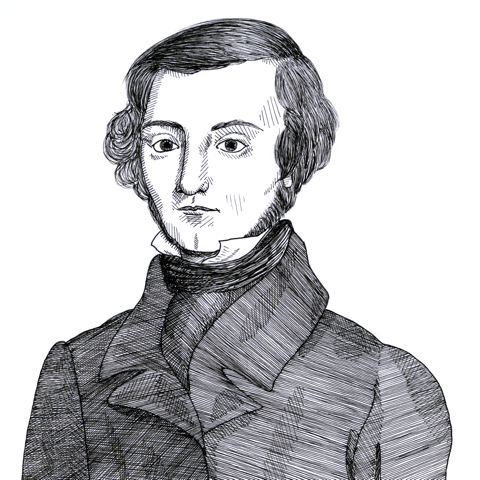
Tocqueville on the “New Despotism” (1837)
Found in: The Making of Tocqueville’s Democracy in America
For volume 2 of Democracy in America (1840) Alexis de Tocqueville (1805-1859) drew up several drafts of his thoughts on the nature of what he called the “new despotism” which he predicted would gradually emerge and turn the nation into “a flock of timid and hardworking animals”. This draft is quoted at length in James Schleifer’s book on Tocqueville:
Presidents, Kings, Tyrants, & Despots
Thus it daily makes the exercise of free choice less useful and rarer, restricts the activity of free will within a narrower compass, and little by little robs each citizen of the proper use of his own faculties. Equality has prepared men for all this, predisposing them to endure it and often even regard it as beneficial.
Having thus taken each citizen in turn in its powerful grasp and shaped men to its will, government then extends its embrace to include the whole of society. It covers the whole of social life with a network of petty, complicated rules that are both minute and uniform, through which even men of the greatest originality and the most vigorous temperament cannot force their heads above the crowd. It does not break men’s will, but softens, bends, and guides it; it seldom enjoins, but often inhibits, action; it does not destroy anything, but prevents much being born; it is not at all tyrannical, but it hinders, restrains, enervates, stifles, and stultifies so much that in the end each nation is no more than a flock of timid and hardworking animals with the government as its shepherd.